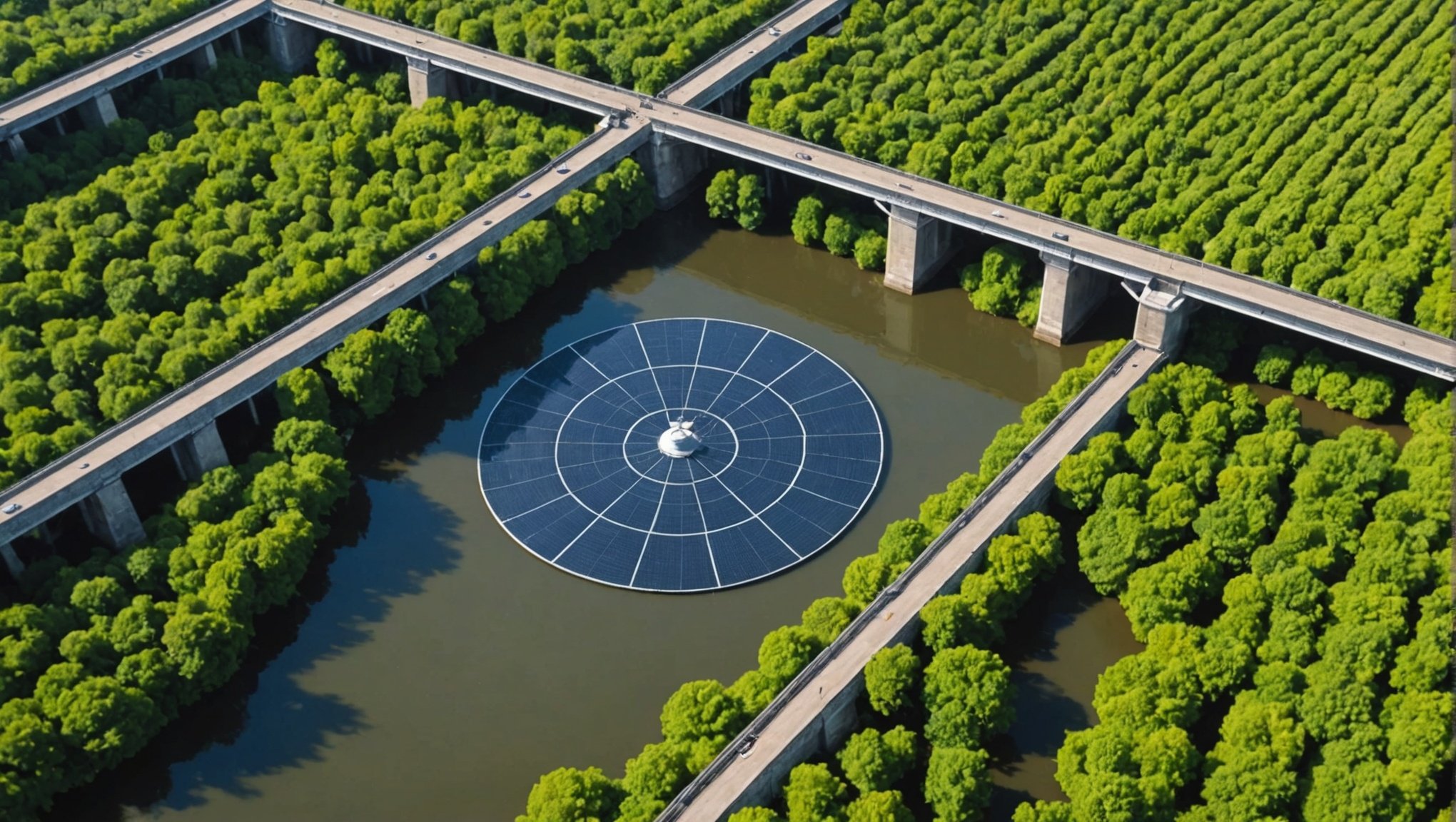Revolutionizing Drought Resilience: The Role of Intelligent Water Management Systems in UK Urban Areas
The Growing Need for Drought Resilience
As the world grapples with the challenges of climate change, urban areas in the UK are facing increasing pressure to manage water resources more efficiently. With more than half of the global population living in cities, and this number expected to rise to 70% by 2050, the strain on urban water systems is becoming more pronounced[2].
Droughts, exacerbated by climate change, are among the greatest global risks to human well-being and prosperity, according to the World Economic Forum’s Global Risk Report 2020. Ensuring the basic delivery of water services while protecting surrounding water resources is a critical task for urban water managers. This requires a holistic approach that integrates smart technologies, sustainable practices, and community engagement.
Have you seen this : Master arabic fluency in just 15 weeks: your essential guide
Leveraging Digital Technologies for Smart Water Management
The integration of advanced digital technologies is transforming the way urban water management is approached. One of the key innovations is the use of digital twins, which create virtual models of physical infrastructure. This technology, as demonstrated by Thames Water in collaboration with Sand Technologies, allows for real-time monitoring, performance optimization, and predictive analytics to foresee potential system failures[3].
Key Benefits of Digital Twins
- Real-Time Monitoring: Enables city planners and utility managers to monitor systems in real time, reducing the risk of disruptions.
- Predictive Analytics: Allows for proactive maintenance by predicting potential system failures.
- Scenario Testing: Enables testing of scenarios and prediction of outcomes before implementing changes, reducing costly errors.
- Strategic Asset Management: Extends the lifespan of critical infrastructure, optimizes resource use, and improves service reliability.
For instance, the wastewater network digital twin project in Jiujiang, China, brought together data from multiple sources to form a high-quality data platform and smart monitoring system. This approach reduced the likelihood of urban flooding, enhanced the drainage system’s response to emergencies, and increased public satisfaction[4].
Topic to read : Transforming UK Urban Mobility: How Smart Roads Enhance Traffic Control and Safety
Harnessing Data for Efficient Water Use
Data plays a crucial role in intelligent water management systems. The use of Geographic Information Systems (GIS), dynamic monitoring, numerical simulation, and big data enhances smart water applications and fosters cross-departmental collaboration.
Data-Driven Solutions
- Telemetric Hydrological Monitoring: Systems like the one developed by ASTHON Tecnologia in Itajubá, Brazil, use Long Range Wide Area Network (LoRaWAN) to monitor, predict, and send alerts for extreme hydrological events[4].
- Predictive Modeling: Tools like Autodesk’s InfoWorks ICM integrate surface and subsurface flows, urban and rural infrastructure, and real-time weather data to anticipate extreme flow events and design rapid response strategies[5].
Nature-Based Solutions for Urban Water Management
Nature-based solutions (NBS) are increasingly recognized as essential for managing urban water challenges. These solutions not only help in managing excess water during intense rainfall but also reduce water pollution, foster urban biodiversity, and enhance the quality of life for city residents.
Sustainable Urban Drainage Systems (SUDS)
- Multifunctional Spaces: SUDS integrate green areas, wetlands, and permeable pavements to manage water within urban landscapes. For example, a project in London combined play areas with water retention zones, achieving dual benefits of flood prevention and providing recreational spaces[5].
- Community Engagement: Educating residents on the benefits of temporary water retention is crucial for the effectiveness of SUDS, especially in arid climates where rain is intense but sporadic.
- Environmental Benefits: NBS retain water within the environment, enabling natural filtration and reuse, thereby reducing demand on conventional drainage infrastructure and minimizing pollution in nearby water bodies.
Anthony McCloy, Managing Director at McLoy Consulting, emphasized the importance of a catchment-based approach guided by a long-term strategy: “We need a catchment-based approach guided by a long-term strategy, where achieving multiple benefits is essential, not optional. Our focus must be on designing with people and the environment at the forefront”[5].
Energy Efficiency and Net Zero Targets
Intelligent water management systems are also crucial for achieving energy efficiency and net zero targets. The European Union’s ‘Green Deal’ aims for carbon-neutrality by 2050, with ambitious targets for zero pollution, a cleaner environment, and improved biodiversity. Similarly, the Danish Government’s green transition policy targets a 70% reduction in CO2 emissions by 2030 and aims for the water sector to become energy and climate neutral by 2030[2].
Energy Efficiency in Water Systems
- Digitalization: Digital technologies can make the water sector more efficient, innovative, and sustainable. For instance, the use of digital twins and AI can optimize energy use in water treatment and distribution systems.
- Renewable Energy: Integrating renewable energy sources into water management systems can significantly reduce their environmental impact. For example, using solar or wind power to operate water treatment plants can help achieve net zero targets.
Policy and Research Initiatives
Policy and research initiatives play a vital role in driving the adoption of intelligent water management systems. The UK, for instance, has several initiatives aimed at improving water management and reducing environmental impact.
University of Exeter’s Research
- The University of Exeter is involved in various research projects focused on water management, including those funded by Horizon Europe. These projects aim to develop innovative solutions for demand management, resource efficiency, and climate resilience.
- Water Use Efficiency: Research on water use efficiency is crucial for developing strategies that minimize waste and optimize water use in urban areas.
South West Water’s Initiatives
- South West Water, a major water utility in the UK, has implemented several initiatives to improve water supply and reduce demand. These include public awareness campaigns, water-saving incentives, and the use of advanced technologies to detect leaks and optimize water distribution.
Practical Strategies for Urban Water Management
Implementing intelligent water management systems requires a combination of technological, social, and environmental strategies.
Demand Management
- Public Awareness: Educating the public about the importance of water conservation can significantly reduce water demand. Campaigns and incentives can encourage households and businesses to adopt water-saving practices.
- Leak Detection: Advanced technologies such as acoustic sensors and AI-powered monitoring systems can help detect leaks early, reducing water loss and improving overall efficiency.
Resource Efficiency
- Water Recycling: Implementing water recycling programs can reduce the demand on fresh water resources. This involves treating wastewater to a level that makes it suitable for non-potable uses such as irrigation and toilet flushing.
- Efficient Infrastructure: Upgrading infrastructure to include smart meters, efficient pumps, and optimized distribution networks can reduce energy consumption and improve resource efficiency.
Revolutionizing drought resilience in UK urban areas requires a multifaceted approach that leverages digital technologies, nature-based solutions, and policy initiatives. By integrating real-time monitoring, predictive analytics, and sustainable practices, cities can become more resilient, eco-friendly, and people-centric.
Key Takeaways
- Digital Twins: Use digital twins to monitor and optimize water systems in real time.
- Nature-Based Solutions: Implement SUDS and other NBS to manage excess water and enhance urban biodiversity.
- Energy Efficiency: Aim for net zero targets by integrating renewable energy sources and optimizing energy use in water systems.
- Policy and Research: Support policy initiatives and research projects that focus on demand management, resource efficiency, and climate resilience.
- Community Engagement: Educate and engage the public in water conservation efforts to reduce demand and improve overall efficiency.
By adopting these strategies, UK urban areas can ensure a sustainable and resilient water management system, ready to face the challenges of climate change and growing urban populations.











